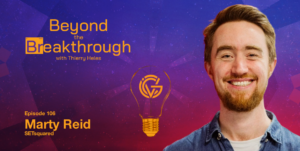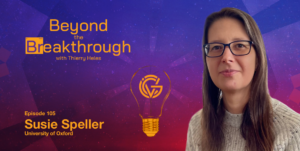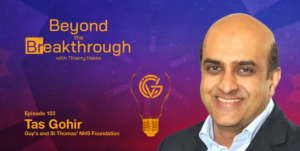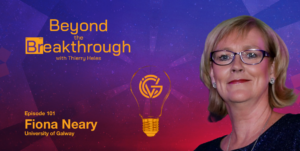-
Season 1 Recap
We revisit the highlights from the past season and find out the key lessons from every guest, from dealing with failure to delivering entrepreneurial training for PhDs to building a cluster that spans more than a dozen institutions.
-
TenU: How do you build critical mass?
Today, we’re bringing you a recording of a recent discussion organised by our friends at TenU, the international collaboration between ten tech transfer offices in Belgium, the US and the UK. The panel, led by KU Leuven’s Paul Van Dun (listen to our interview with him in episode 31), tackled the question: how do you build critical mass to create innovation ecosystems? Offering their expertise were University of Michigan’s Kelly Sexton (hear more from her in episode 13), Ouest Valorisation’s Vincent Lamande, Innovate UK’s Geeta Nathan and Northern Gritstone’s Marion Bernard (and you can learn more about that firm in our interview with her colleague Duncan Johnson).
-
CVC Unplugged: Owen Thompson
We’re bringing you an episode from Mawsonia’s other podcast, CVC Unplugged, featuring an interview with Owen Thompson, CEO of Cambridge Future Tech.
-
Marty Reid: How SETsquared supports founders from idea to exit
SETsquared has achieved something few have: it’s built an ecosystem that spans six institutions across England and Wales and a programme that provides end-to-end support to founders both within and without the universities. Banding together means the six universities don’t just rival their peers in London, Oxford or Cambridge (portfolio companies have raised some £4bn to date), but in some areas are setting the pace: Bristol, for example, is responsible for a third of all quantum computing companies in the UK.
-
Prof Susie Speller: Will superconductors allow us to achieve net zero?
Prof Susie Speller is a fellow at St Catherine’s College and researcher in the Oxford Centre for Applied Superconductivity at the University of Oxford, where she helps corporates like Siemens Healthineers (which manufactures MRI scanners), fusion energy developer Tokamak Energy and scientific instruments company Oxford Instruments solve challenges around superconductors.
-
Nick McNaughton: Turning academics into entrepreneurs is a matter of national security
The Australian government wants to get 1,800 more PhD candidates to commercialise their work over the next decade, as part of the A$2.2bn University Research Commercialization Action Plan. But turning PhD students and early-career researchers into entrepreneurs is not a simple task. How do you identify the right people and train them to embrace a more commercial way of thinking?
-
Tas Gohir: Creating an NHS fit for the 21st century
The NHS, the UK’s national health service, is often seen as slow to adopt innovation. But Guy’s and St Thomas’ NHS Foundation Trust, located in London and linked to King’s College London — has actually created a highly sophisticated unit to commercialise innovations developed at their hospitals.
-
Mark Mann: How to build social venture spinouts
Can British university research help families in South America secure a mortgage? That’s what the University of Oxford did with its social venture spinout SOPHIA Oxford, which analyses contributing factors to poverty from the state down to the corporate level and helps companies make better choices for their employees.
-
Fiona Neary: University of Galway
University of Galway has long been a leader in medtech, so it makes sense that Fiona Neary, innovation operations manager in the institution’s Innovation Office, created the country’s first medtech accelerator programme in 2018.
-
Beyond the Breakthrough
It’s time to let you know what we have planned. We’re re-launching as Beyond the Breakthrough!
Over the past three and a half years, and 100 episodes, one key takeaway has been the fact that the public still doesn’t understand how university research gets into the marketplace — and that needs to change.










